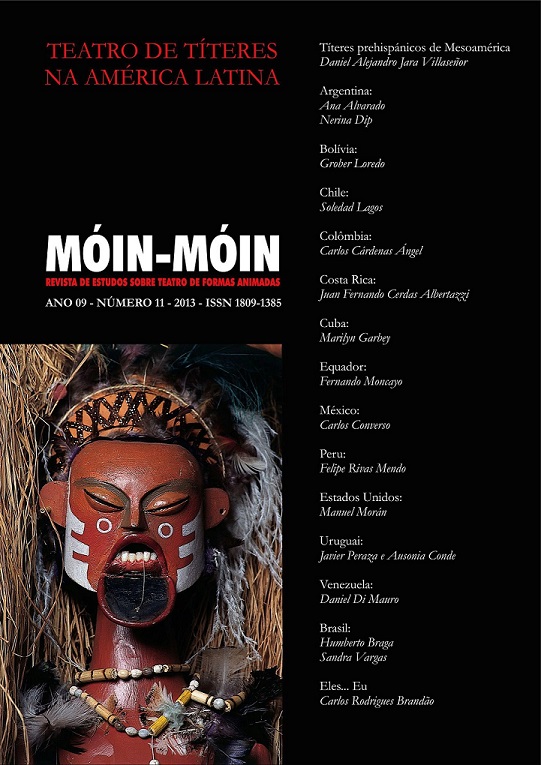¿Teatro híbrido o teatro de la sabiduría? OANI Teatro, Viaje Inmóvil, Teatro Milagros y Teatro Ocasión
DOI:
https://doi.org/10.5965/2595034702112013068Resumo
Hoy en día, existe la tendencia a pensar ciertas propuestas artísticas desde
el concepto de lo híbrido o la hibridación, indagando en el tipo específico de híbrido que ellas representarían, en sus características, cualidades y/o desventajas, en su parentesco con otras obras y en su grado de innovación, ruptura o transgresión, lo cual constituye una aproximación más bien centrada en elementos formales o en intentos taxonómicos, sin duda respetables, pero que nunca son suficientes para dar cuenta de la complejidad de una determinada manifestación artística. El presente artículo aborda el trabajo de cuatro compañías muy diferentes entre sí, que han enriquecido en los últimos años nuestra escena teatral chilena con propuestas estéticamente muy bellas y elaboradas, pero, por sobre todo, con temas ligados a un tipo específico de problemáticas enraizadas en dolores, carencias y pérdidas, pero también en la necesidad de reivindicar la fantasía y la creatividad en la formación de los niños que se convertirán algún día en adultos, las cuales suelen estar ausentes en un discurso oficial de auto-percepción triunfalista, en el que sólo cuentan los éxitos económicos de un país en el cual la abismante desigualdad en el acceso a todo tipo de oportunidades, la notoria y vergonzosa polarización económica y social y la negación de lo otro, en términos de lo desconocido o lo diferente, por parte de vastos sectores de la población, en una topografía cultural que es, no obstante, compartida, siguen formando parte de nuestro paisaje cotidiano.
Palabras-clave: Teatro Chileno. Hibridismo. Teatro Contemporáneo.
Downloads
Downloads
Publicado
Como Citar
Edição
Seção
Licença
Ao submeter um artigo à Móin-Móin Revista de Estudos Sobre Teatro de Formas Animadas e tê-lo aprovado os autores concordam em ceder, sem remuneração, os seguintes direitos à Revista: os direitos de primeira publicação e a permissão para que a Revista redistribua esse artigo e seus metadados aos serviços de indexação e referência que seus editores julguem apropriados.
Os artigos cujos autores são identificados representam a expressão do ponto de vista de seus autores e não a posição oficial da revista Móin-Móin.
Plágio, em todas as suas formas, constitui um comportamento antiético de publicação e é inaceitável. A Revista Móin-Móin reserva-se o direito de usar software ou outros métodos de detecção de plágio para analisar os trabalhos submetidos.
![]()
Este obra está licenciado com uma Licença Atribuição-NãoComercial 4.0 Internacional






